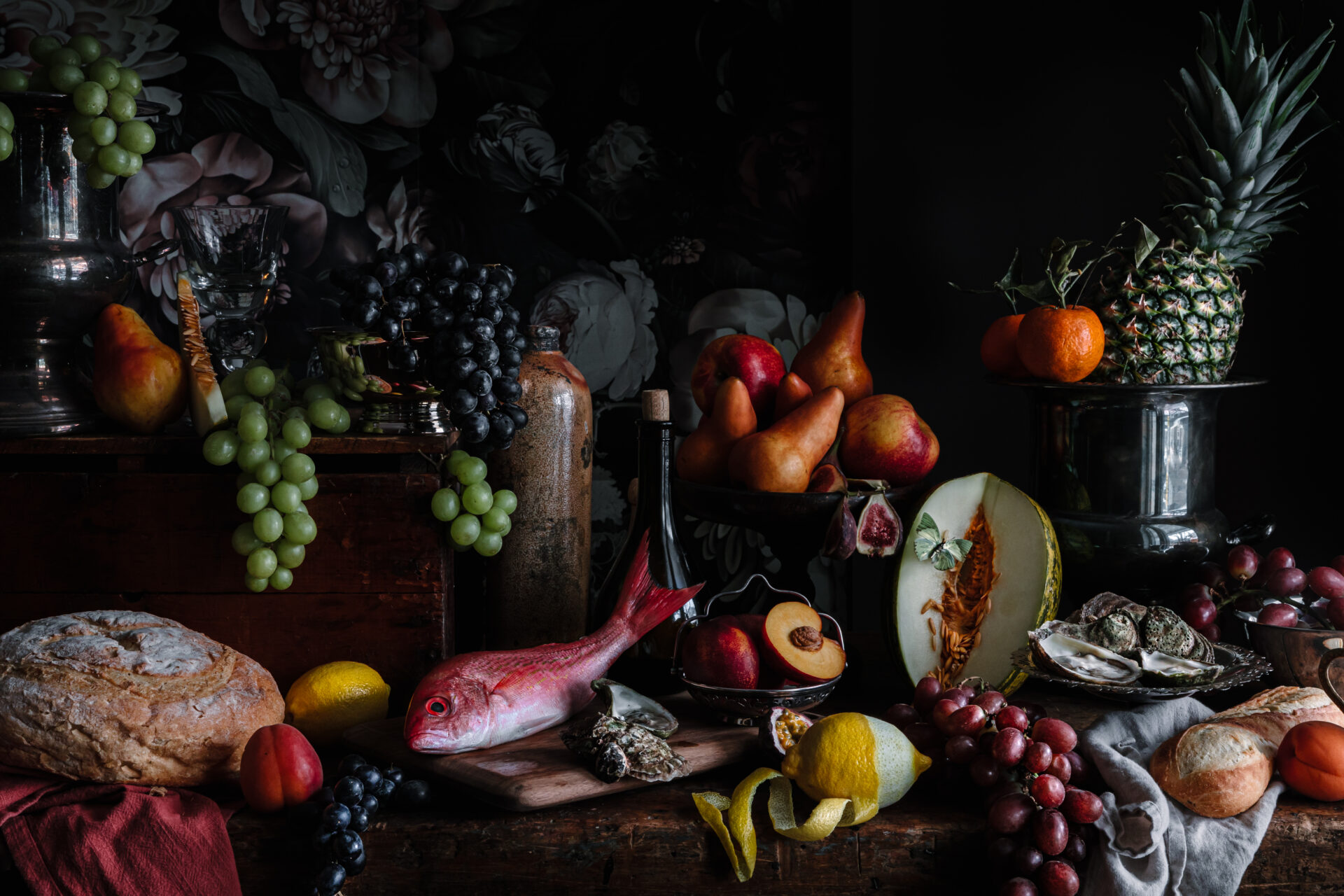
Almost a decade after Amandine Beyer’s memorable Tafelmusik debut, the French violinist returns as guest director and soloist in Feast for the Senses: Lalande & Rameau on Oct. 18 & 19 at 8 PM, and Oct 20 at 3 PM. Renowned for her “majestic, gossamer, hypnotic” playing (Le Monde), Beyer has crafted a musical menu with a predominantly French flavour, evoking the elegance and grandeur of Versailles and Paris.
We caught up with Amandine between festivals and engagements with her ensemble, Gli Incogniti, to chat about childhood musical memories, the connection between music and movement, and what she considers to be quintessentially French qualities.
Get to know Amandine Beyer, whose irrepressible, irresistible spirit shines throughout this interview.
How did music enter your life first?
Music already entered my life when I was in my mother’s womb because she loved to listen to concerts, recordings, and radio, and also because my sister, who is eleven years older than me, was already playing piano at every hour!
Did you start your musical journey on modern violin and then switch to
gut strings?
I began my musical education when I was four, in a garden in Aix-en-Provence with the Dalcroze method, a very active and percussive way to approach the phenomenon of music with dancing and singing. At almost the same time, I began to play the recorder, and when I was not yet seven, I began studying the modern violin. I played these two instruments side by side for many years. Of course, with the recorder you have mostly only very old repertoire (medieval, renaissance, baroque) or very modern or contemporary music, and the violin was mainly romantic repertoire.
But I was just a child and I didn’t know. I just played the music.
It is only after my modern violin studies in Paris that I finally discovered the world of gut strings and historical bows, in Basel, at the Schola Cantorum, thanks to my teacher Chiara Banchini and my life changed!!!

Your ensemble Gli Incogniti presents an annual academy that pairs chamber music classes with the study of movement techniques and bodywork (dance, relaxation, and Alexander technique). Why do you feel it’s important for musicians to combine these two elements in their training?
I think that it is all about my first musical training: I had this amazing memory of moving around freely, bathed in sunlight and surrounded by music from the piano that the teacher had moved outside, on a terrace in the middle of a wild and amazing garden. Those kinds of memories are really strong, and as a young adult, when I began to get interested in pedagogy and learning processes, it all came back—all the freedom, ease, and lightness. The dancing approach is also linked to the soul of the baroque violin, which was born as a “party” instrument that made people happy, the ideal companion to any kind of ball or gathering.

The Alexander Technique came a bit later, during my studies in Switzerland. Chiara Banchini introduced me to an amazing woman, Dorothe Meury, who is still my AT teacher and who has helped my students since 2010, when I began teaching at the Schola Cantorum Basiliensis.
Dorothe then introduced me to the Alexander technique teacher Alexander Farkas, who is now a big influence in my teaching and the evolution of my playing.
And finally, I work closely with violinist Aingeala de Búrca, another amazing teacher of Alexander work. We’ve been a “teaching duet” for the past seven years, and our relationship is based on respect, exploration, and surprises.
This reflection about the way we think and act is really fulfilling my life and is a huge help for me and the people who come to me with their violins and violas.

Photo by Guilhem Mignon.
If music had not been possible as a career, what would you most likely be doing now?
I would have been a hairdresser…and still would like to be one!
In Feast for the Senses, you’ll be
offering a musical menu with a predominantly French flavour. What are the quintessentially French elements we should listen for?
I love so many things, all very different and from various origins and time periods. Since I am French, I guess many musicians see me as more skilled in this kind of style. Of course, being a French-speaking person helps with the musical “accent.”
As for the quintessentially French elements, I am sure there are plenty, but since we will be playing a lot of different composers and pieces, I imagine this little inventory:
Beauté (beauty), charme (charm), insouciance (insouciance), soif d’exotisme (thirst for exoticism), douceur (sweetness), élégance (elegance), mesure (restraint), démesure (extravagance), plenitude (abundance), amour de la nature (love of nature), humanité (humanity), divinité (divinity).
As someone who travels regularly, what is your favourite thing about being on the road?
Meeting people! And meeting people again, as I will when I return to Toronto!!!


